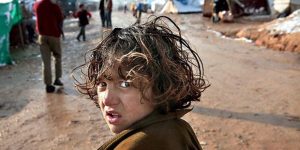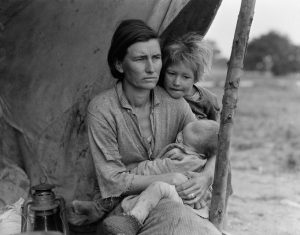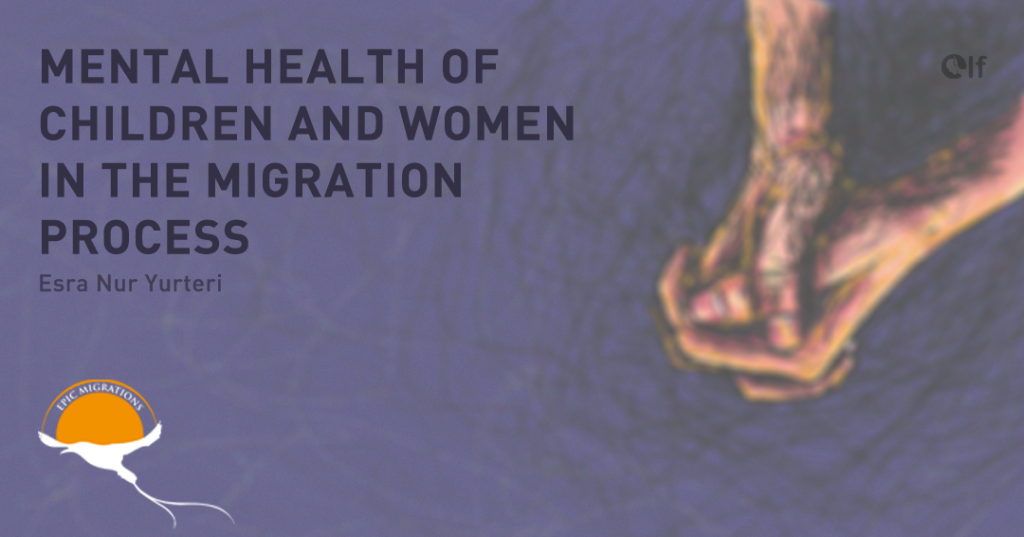 Migration is a social phenomenon that has existed throughout human history and has economic, psychological and social effects. In this context, the definition of migration get changed according to the field such as psychology, sociology, economics or geography. An individual who goes or forced to go to another place from where he finds one goes through serious paths in the psychogical, as in all areas of one’s life. At this point, the type of migration plays an important role in the individual’s understanding of this process.
Migration is a social phenomenon that has existed throughout human history and has economic, psychological and social effects. In this context, the definition of migration get changed according to the field such as psychology, sociology, economics or geography. An individual who goes or forced to go to another place from where he finds one goes through serious paths in the psychogical, as in all areas of one’s life. At this point, the type of migration plays an important role in the individual’s understanding of this process.
Children and women are most affected by the migration process such as seen another issues. Children are generally the party who is forced to migrate and they have more emotional perspectives than other ones. It is common for them to have traumas related to the life they have left. At the same time, it has been observed that migration experience brings with it situations such as fear, anxiety, adaptation, sense of belonging, alienation, feeling of emptiness, identity and feeling of inferiority, doubt, marginalization, failure, tendency to crime, stress and depression. On the other hand, stress, which is a danger to the health of the person, is another phenomenon that the child fights in this process. The first step that children encounter and that affects their mental health and behavior is the “adaptation” step. In addition, how the child makes sense of the new life one has migrated to and how one is welcomed by one’s new life is another important factor affecting this process. Every child wants to be satisfied and to be approved by one’s environment. “Anti-social personality disorder” occurs in order to reduce the pressure they feel in children who negatively affect the adaptation process.
Traumas that occur with migration in childhood affect the perspective and behavior of the individual throughout his/her whole life. For this reason, children need “psychological resilience” in order to overcome the adaptation process more easily. The psychological resilience of the child is even affected by the attitude of the parents. For example, a parent who wants to protect their child against the new culture and restricts them further pushes their child out. The family of the migrant child, if any, is active in the integration process. Developmental, mental and physical problems occur in immigrant children who are deprived of their parents’ love, support and presence. Another trauma that affects the adaptation process of migrant children is that they work for cheap prices – usually on the street. Game, education, a circle of friends and social activities are essential to the development of every child.
The situation is similar to that of children in women, who make up half of the immigrants and are most affected by migration. The area where women immigrants have the most difficulty is the field of work. Because women can work in jobs with low status, low wages, high physical burden, gender discrimination and heavy working hours, except for exceptional types of migration. At this point, women are also in the risk group in terms of abuse. On the other hand, language and health problems are the most common problems faced by women after working life. Women who are face to face with work, language and health problems face stress disorder by having difficulties in the process of belonging and adaptation. In a study on suicide in Europe, it was found that immigrant women attempted suicide due to identity and role crisis. In another study, it was observed that women preferred not to leave the house as a result of the problems they experienced in the places they migrated.
 When everything is taken consideration, it becomes clear that women, children and all immigrants deserve to live in more positive conditions like every living thing. At this point, providing psychosocial support to immigrants is a basic need such as housing.In addition, host country’s members should raise awareness about again immigrant, teaching children survival skills, training immigrant families to improve their behavior towards children, increasing the services that will improve the mental health of immigrant families, providing language training to immigrant women and providing more opportunities to benefit from their health rights. should be carried out.
When everything is taken consideration, it becomes clear that women, children and all immigrants deserve to live in more positive conditions like every living thing. At this point, providing psychosocial support to immigrants is a basic need such as housing.In addition, host country’s members should raise awareness about again immigrant, teaching children survival skills, training immigrant families to improve their behavior towards children, increasing the services that will improve the mental health of immigrant families, providing language training to immigrant women and providing more opportunities to benefit from their health rights. should be carried out.
Kaynakça
- B. Aysel Özdemir içinde, Göçün Çocuk Ruh Sağlığı Üzerine Etkileri. KADEM Kadın Araştırmaları Dergisi.
- Aydın içinde, Göçmenlerin Karşılaştıkları Bazı Psikolojik Sorunlar ve Çözüm Önerileri Üzerine Bir Analiz . Proceedings Book of 2nd International Scientific Researches Congress on Humanities and Social Sciences .
(2015). A. I. Ayla Tuzcu içinde, Göçün Kadın Ruh Sağlığı Üzerine Etkileri (s. 55-67). Psikiyatride Güncel Yaklaşımlar.
GÖÇ YAŞANTISI ÇERÇEVESİNDE ÇOCUKTA PSİKOSOSYAL UYUM SÜRECİ ÜZERİNE BİR İNCELEME. (2018). A. O. Selin Cennet GÜLMEZ. içinde SOSYAL POLİTİKA ÇALIŞMALARI DERGİSİ.

